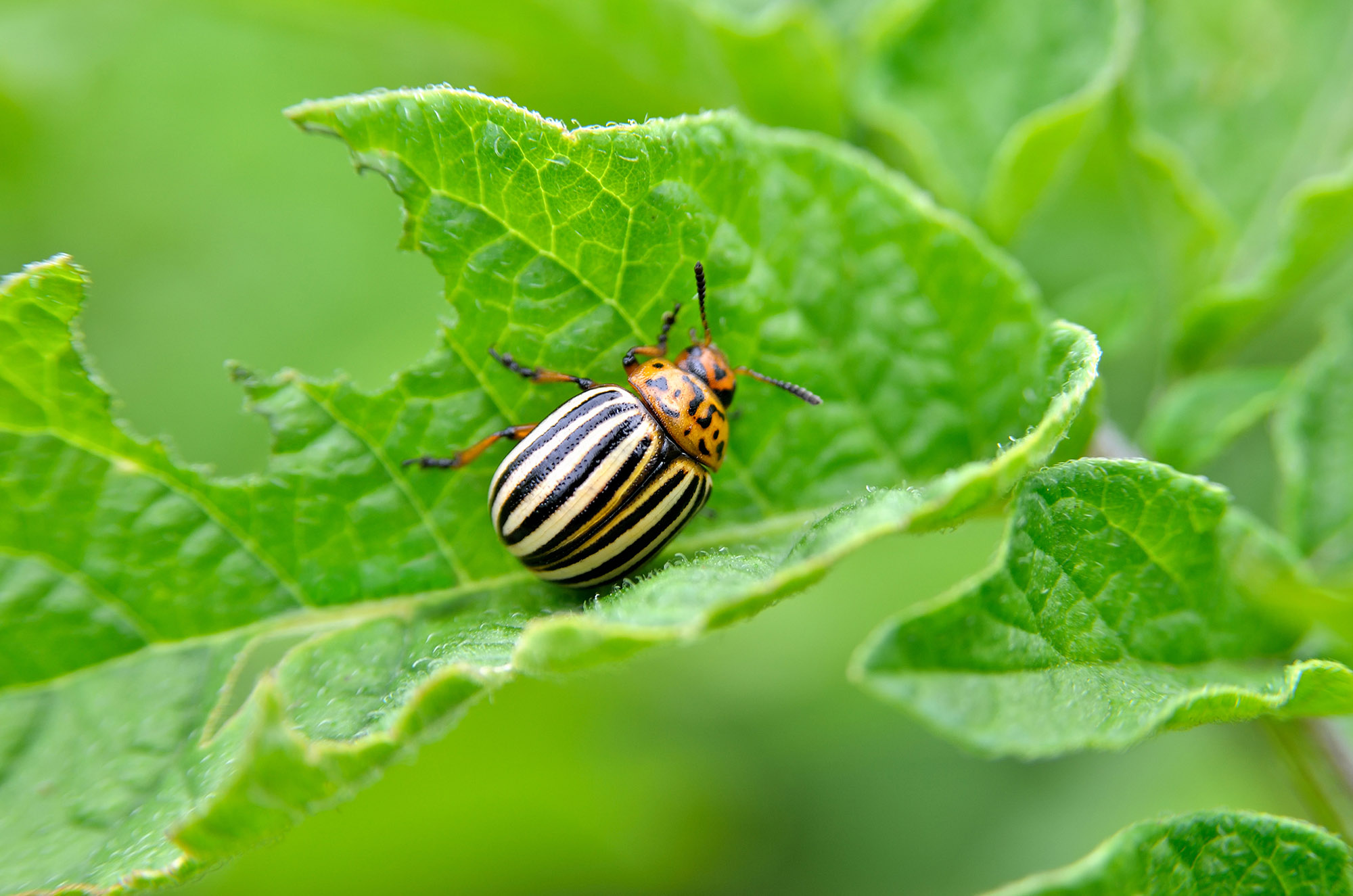
This time of year, Colorado potato beetles are starting to snack on the leaves of newly-sprouted spuds, while challenging farmers with their ever-evolving insecticide resistance.
In large-scale potato farming there are no easy ways to get rid of potato beetles.
There are no longer armies of family farm laborers available to hand-pick the bugs and their larvae from the plants, and many populations of the bugs have developed at least some resistance to nearly every chemical pesticide used on them in the last century, including neonicotinoids, one of the newest classes of insecticides.
A new University of Maine study, though, suggests that farmers might be able to add another approach to their overall strategy — promoting beetle cannibalism.
Observing the beetles in a laboratory, the researchers found that Colorado potato beetles facing starvation and crowding ate beetle eggs and young beetles and injured beetles and other adults.
It’s a laboratory study and not suggestive of a “silver bullet” solution, but it’s an important finding, said Andrei Alyokhin, lead researcher and UMaine entomologist.
“It does show that if we create an unfavorable environment for beetles, for instance by crop rotation, they’ll have nothing to eat when they awake from hibernation” in potato fields, said Alyokhin, who is also the director of UMaine’s School of Biology and Ecology.
“If we create those kinds of unfavorable conditions, they may start eating each other.”
Alyokhin has been studying the Colorado potato beetle and other potato pests for more than a decade, along with a range of chemical and cultural strategies to control them.
While insecticides are still successful at preventing large scale damage from the beetles, the beetle is “infamous for its ability to develop resistance,” Alyokhin said. “Farmers historically have been spraying insecticides to keep them off, but beetles keep evolving resistance, so they have to increase the dose or switch the product.”
“Chemical control provides a short-term solution but it is probably not particularly sustainable long-term,” he added.
This latest research points to the importance of having multiple strategies, rather than one technique, Alyokhin said.
Crop rotation is one way to try to create unfavorable conditions for the beetles. All of Maine’s potato farmers are at least rotating fields each year between potatoes and grains, and many also are trying to extend that rotation to three years.
Looking ahead, Alyokhin said he and his research team plan to continue looking into beetle cannibalism and the factors that drive it, along with other, related options for controlling the pest.
“Cannibalism is a nice thing for us that’s happening for us but we cannot rely on it.”







